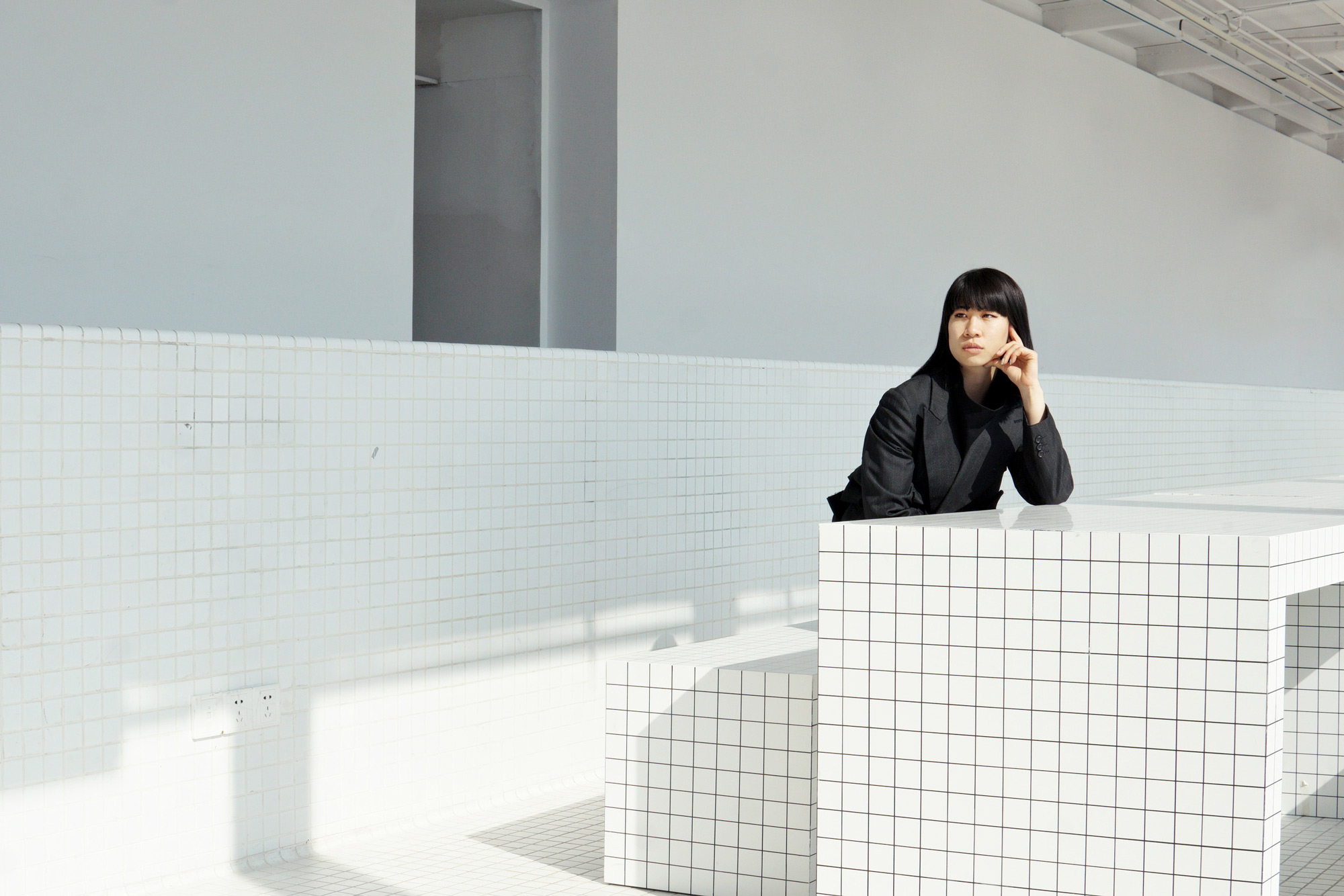At 3200m above sea level, the morning air in Shangri-la was crisp and dry, albeit a little thin. I woke up when the sky was still dark. As the morning grew brighter, clouds loomed over the mountain range, partially covering its peaks as they floated by. The silence was punctured by the occasional bird cries; jingles of heavy bells hanging from the necks of grazing yaks was occasionally interrupted by conversations between Andrew Yakson and Yakeline Kennedy. Motor vehicles rarely made its appearance. The sounds so prevalent in cities were uncommon, except for the descending airplanes heading for the tarmac located fifteen minutes away from where I was.
On the balcony where I was sitting, I had an unobstructed view of the plain my chosen accommodation was located in. Undulating mountains in rich shades of green and browns brought a sense of long-forgotten ease.
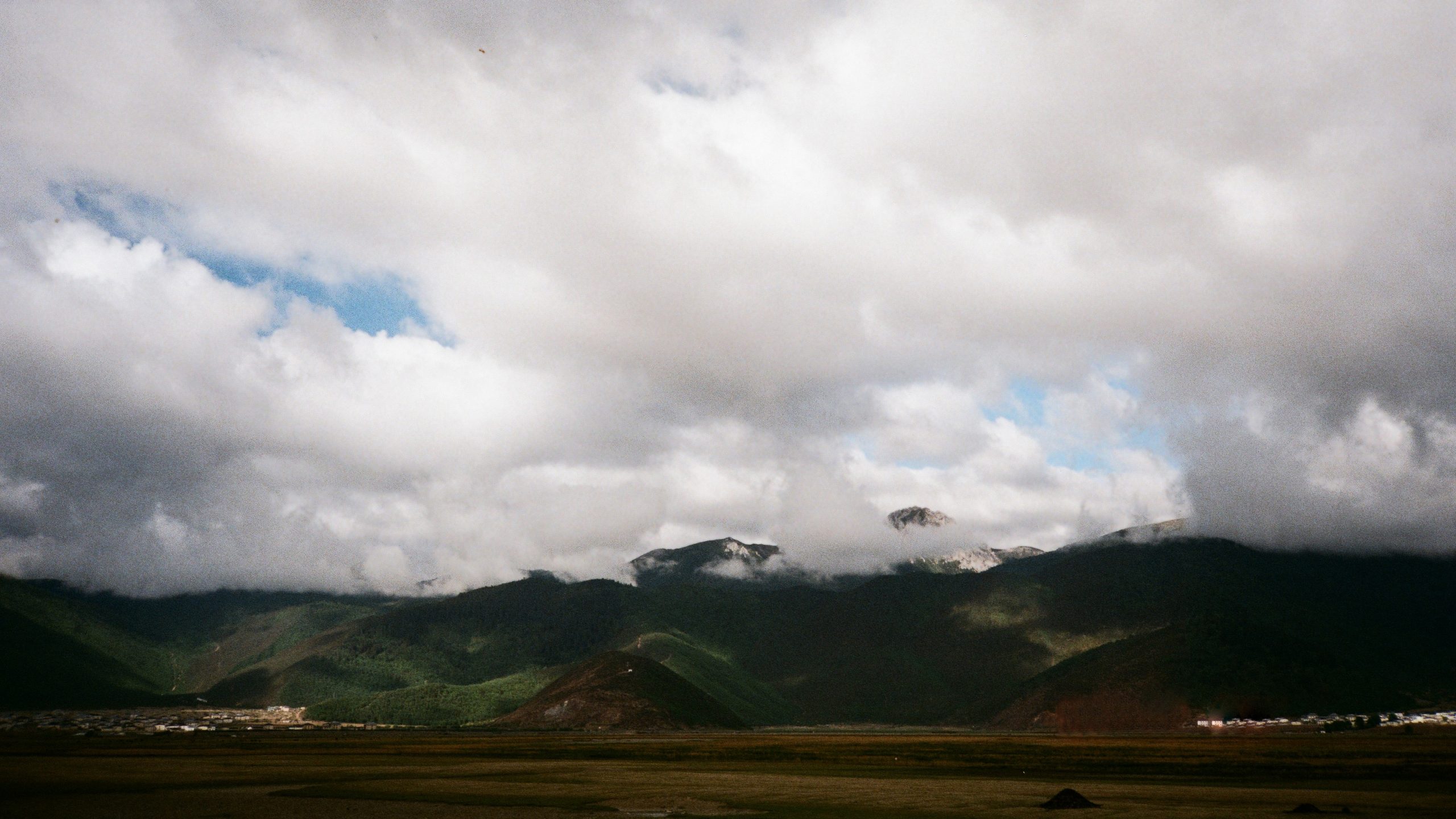
Every year I used to make a pilgrimage to a remote hot spring village in Japan in order to mentally pull myself away from work obligations – the kind of obligations that led me to neglect my needs for utter emptiness to allow for metaphysical contemplation. Weekends do not provide ample room for such luxury as I will undoubtedly be tinkering on new projects and long-overdue emails. A remote location allows me to seek solitude; its tranquility a space to think.
As of the time of writing, international travel was still not a viable option. I thought that this would be the perfect chance to seek a slice of solitude within China. It is after all, one of the largest countries in the world.
This was by no means my first attempt. I cannot stress how difficult it is to find a secluded, open place with decent amenities that is easily accessible by public transport. There are simply too many people living on the eastern seaboard that everyone flocks towards the same holiday destinations. It thus becomes a challenge to find a quiet space that provides comfort both mentally and physically.
So I took a drastic measure and flew halfway across the country, from the east coast to the southwestern province of Yunnan where the town of Shangri-la (formerly known s Diqing) is located, not knowing what to expect. What enticed me was the location of my accommodation, which was in the midst of a valley on a vast plain surrounded by mountains, away from the actual town itself. A growing municipality built on the outskirts of Tibetan plateau, Shangri-La’s cool climate provides an escape from the heat and humidity of Shanghai. There are more yaks than people on these plains. Its close proximity to Tibet gave me a glimpse into Tibetan architecture, people and their way of life in modern times.
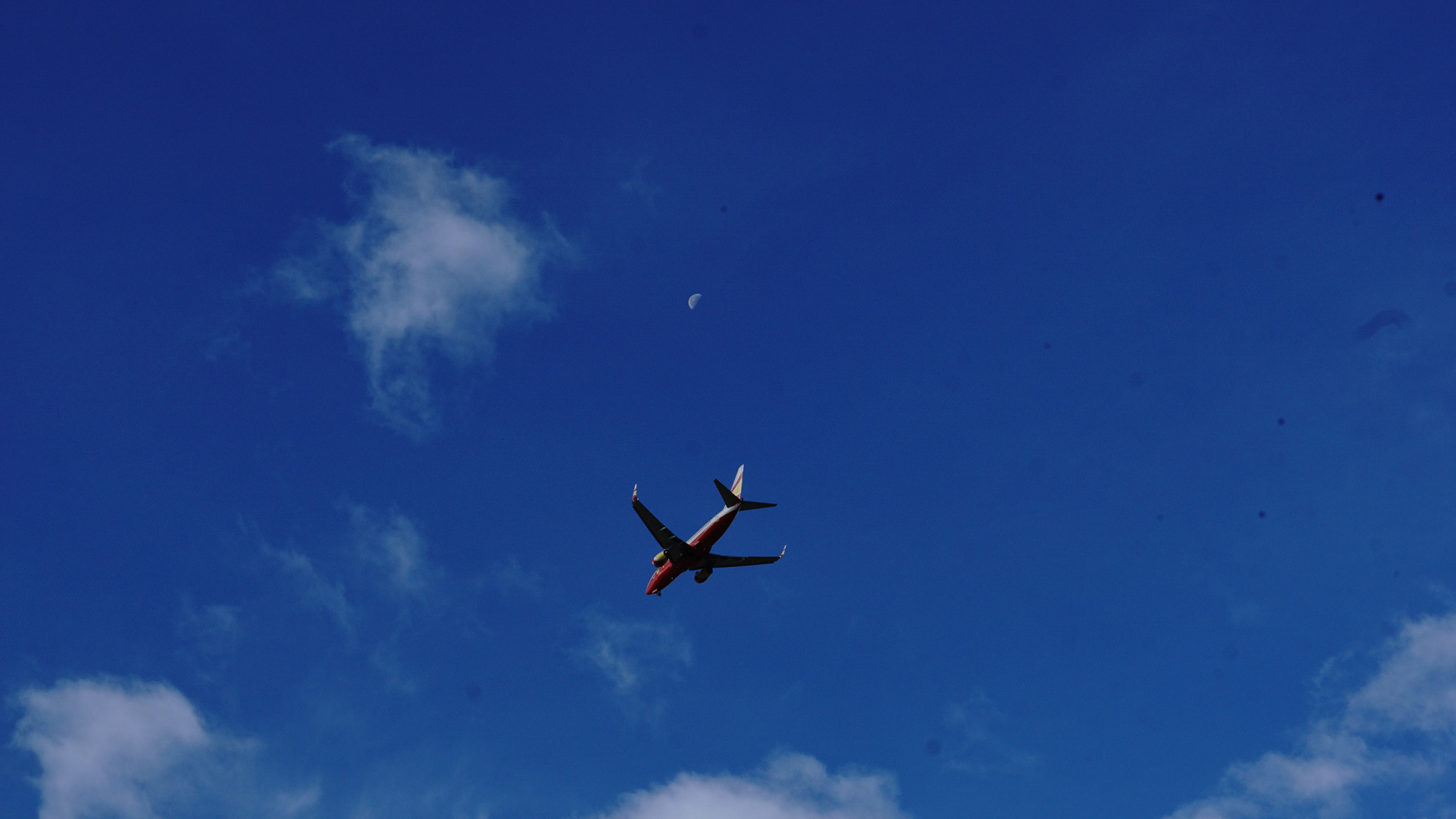
It was hard to describe how happy I felt surrounded by mountains. Often I envy writers like Gore Vidal who could afford to purchase a lavish villa overlooking a cliff, or Haruki Murakami who has a separate home for writing. Voluntary reclusion would be at the top of my frequent to-do list if I can put my business on a long leash.
Don’t get me wrong. I love designing clothes and many parts of running a business. But the hectic schedules take up all my time and mental energy, leaving very little space for writing to occur. The ideas in my head are so cooped up that they are as restless as a pack of sled dogs waiting for a musher’s commands. It takes a lot of mental energy to force the torrent of thoughts to flow in a coherent manner. Without the right orders, the word vomit jumps from one topic to another, making the entire writing exercise futile and frustrating.
Writing and designing are, from my experience, not that much different in terms of cognitive usage. A certain mental space is required to process all the information that I have seen and read, before interpreting them for my essays. But seeing as I am a visual person, designing clothes is still a more natural practice than writing.
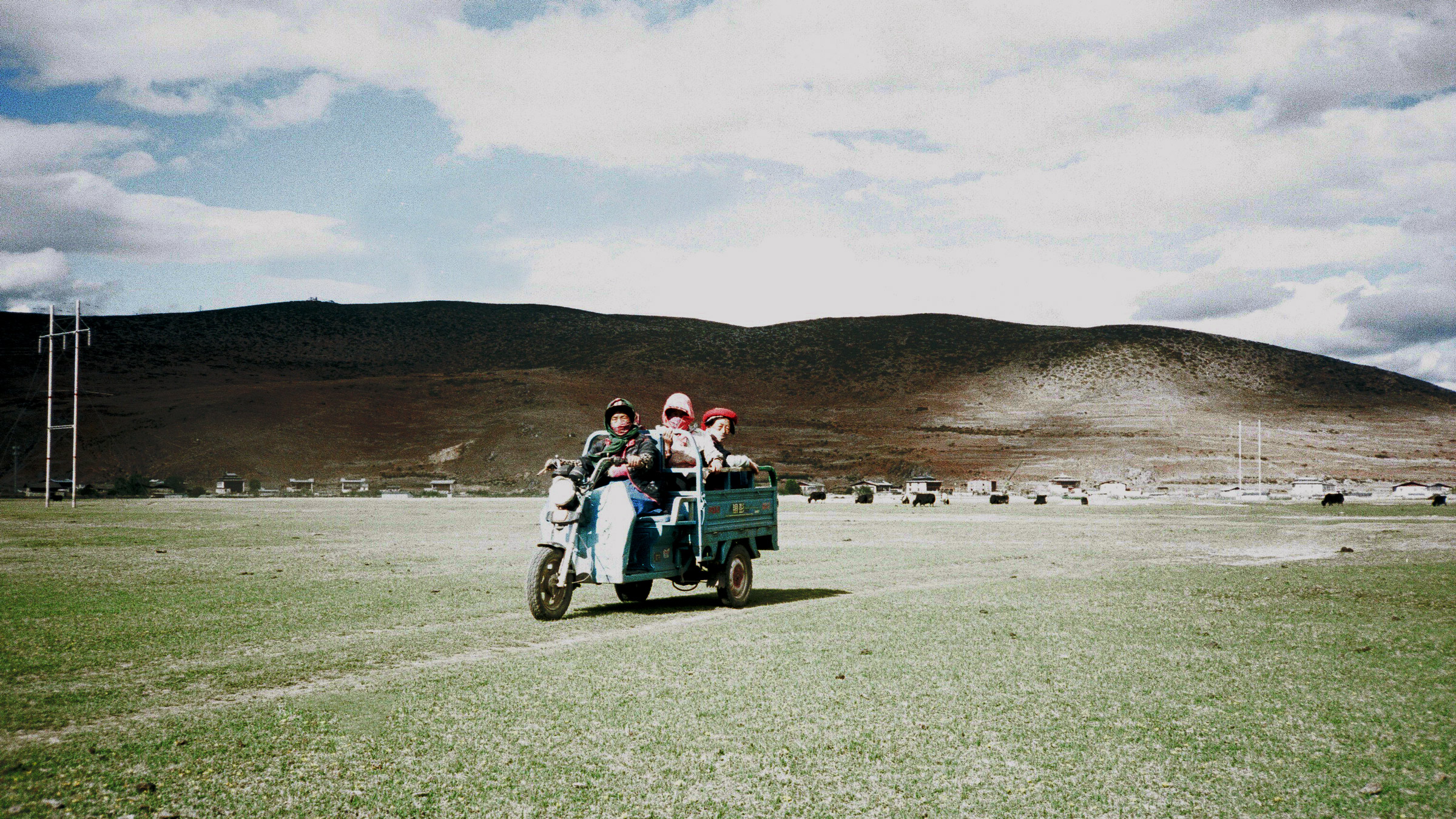
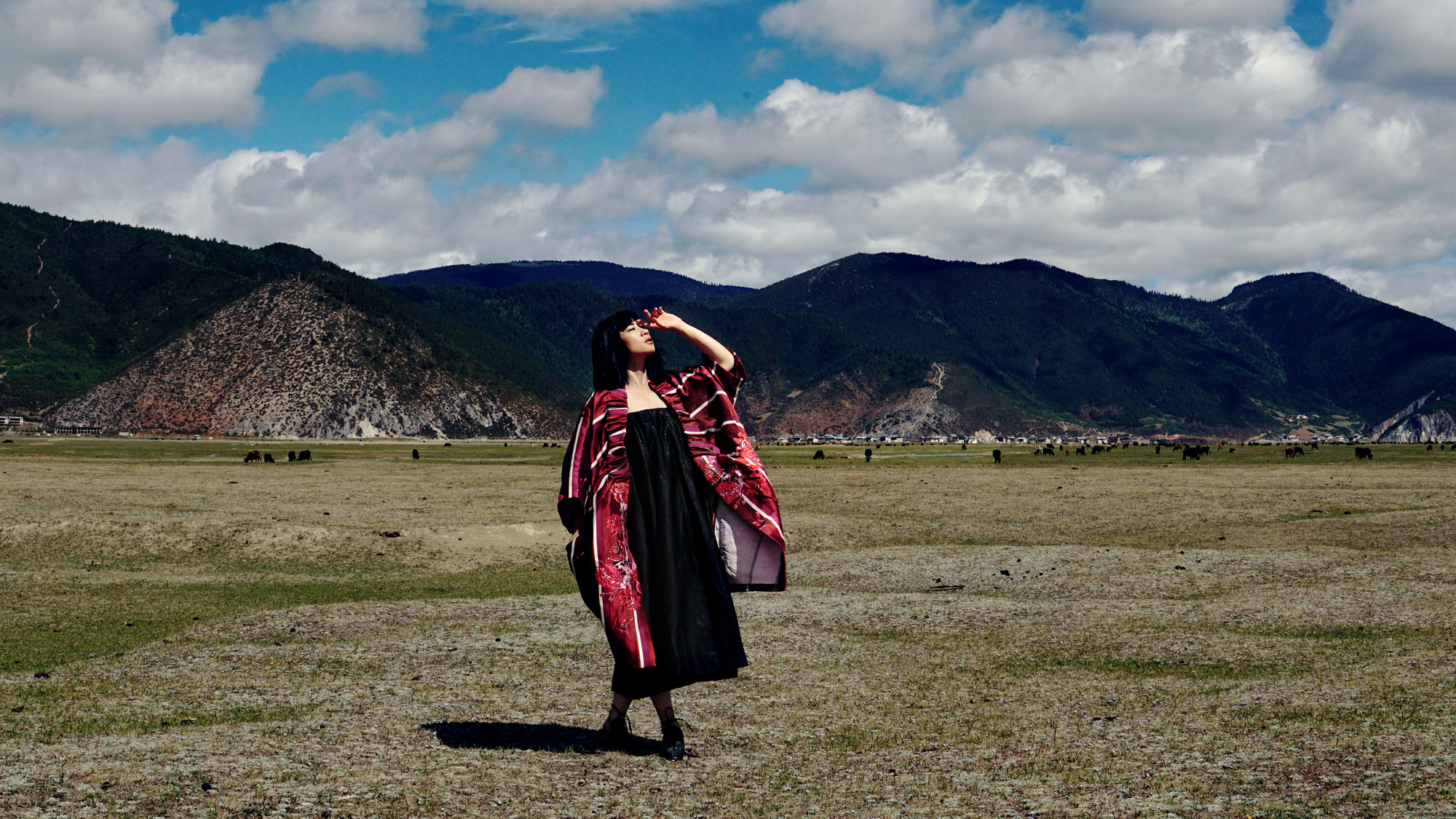
For someone who runs a fashion business, I do not observe fashion trends as closely as my peers. Whenever I do so, I get disappointed by what I have been seeing for the big part of the last decade. In the last few years alone, there has only been one label whose clothes have moved me consistently, and it came so far out of left field that I was amazed by my own reaction. That house is none other than Valentino Couture, after Maria Grazia Chiuri has left for Dior. In contrast, the brands I used to look up have not taught me a new way of seeing and thinking, so I prefer to look back at their archives to retain fond memories of them.
I sincerely believe that in order to make clothes that address one’s needs for long-lasting aesthetics, comfort and expressions of desires, it is important to empathise with human conditions and be conscious of the zeitgeist. Not understanding how the world works results in ornamental beauty that does not penetrate the superficial wants for novelty in mindless consumerism.
In the last year or so since the pandemic began, I have taken a stronger interest in the study of human behaviour and coping mechanisms in times of crisis. I often wonder whether we are currently on a seismic paradigm shift in history, or perhaps we are just far too exposed to 24-hour news cycle that prefers to deliver bad news. Or maybe because I am at the stage of life where political, philosophical and historical discourses have taken a more prominent place in my mind, which makes it hard to gauge the true intensity of each global crisis objectively because every crisis seems worse than the last.
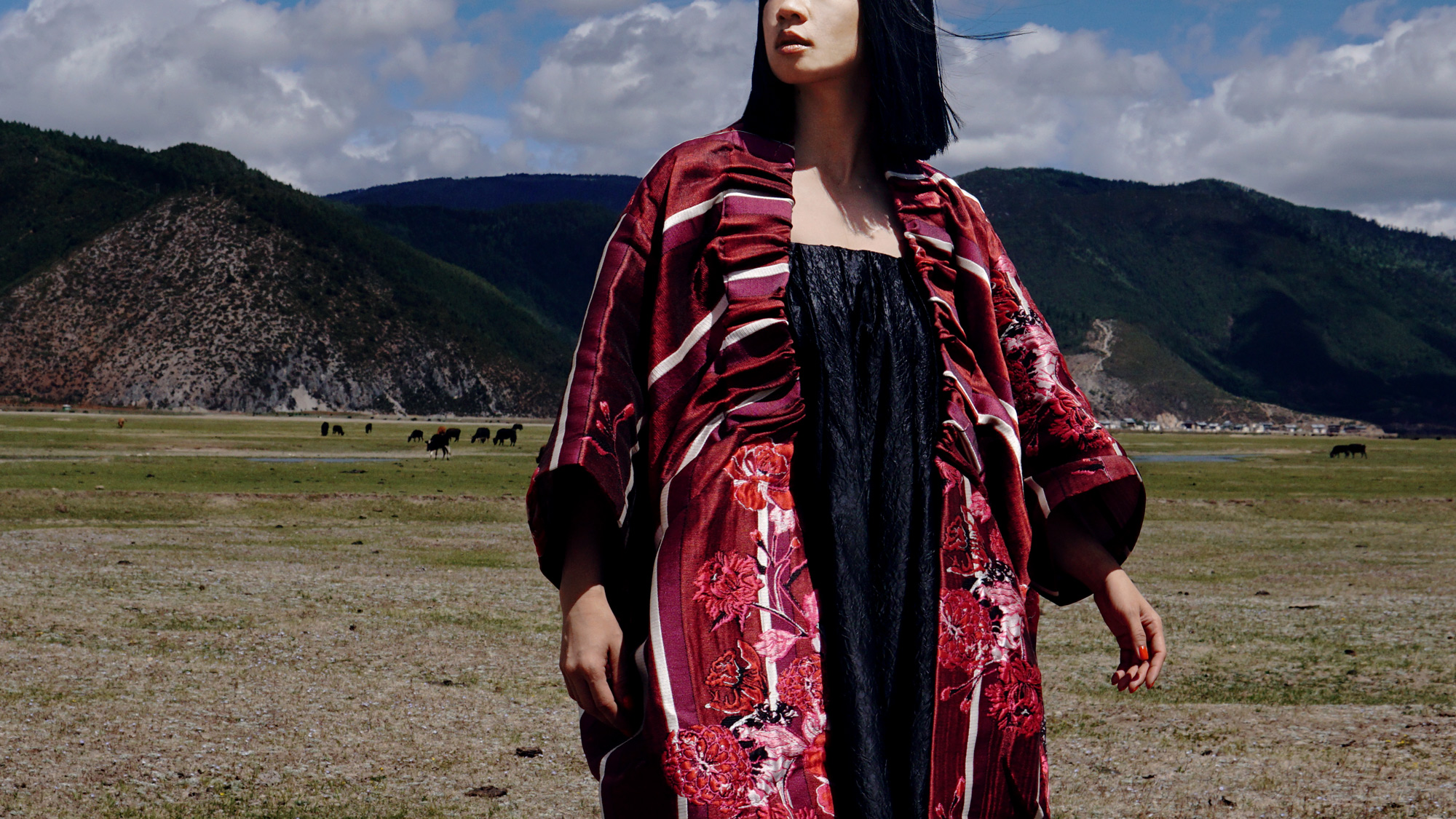
I was born in the late 80s so I had no idea what it felt like to go through The Great Depression, World War II, and all the events surrounding the Cold War. I did remember going through the Asian Financial Crisis in the 90s, but I could hardly understand it except by seeing how distressed my father was, and the resulting racial riots which forced us to flee our home country. Then the 2008 Great Recession happened right before I started my tertiary education. It made waves around the world, though not directly on myself who had yet to enter the workforce. I only felt the reverberations when I started own my job hunt some years later. I discovered that the labour market had gone through a structural shift – small companies went bankrupt or are consolidated into larger conglomerates, wages and opportunities fell, bargaining power for employees grew weaker. This on top of the reality shock in finding out that the oft-touted meritocracy is not exactly practiced in real life.
In real life, factors beyond our control affect our chances of employment and the future of our career, such as one’s nationality, which school we can go to based on our parents’ financial status, whether one knows people of influence etc. Employers would not go through the extra mile if there are plenty of ‘easy’ candidates to choose from, especially when it comes to filling up starting positions. There are unspoken rules in life that schools will never teach us. Some of us will encounter many of them, some rarely do.
Having gone through a period of unemployment right after graduation, I came to realise that the world is not fair, but it also does not owe us anything. The sooner I got over the disappointment, the sooner I could play the game we call life, with its unequal rules and playing fields.
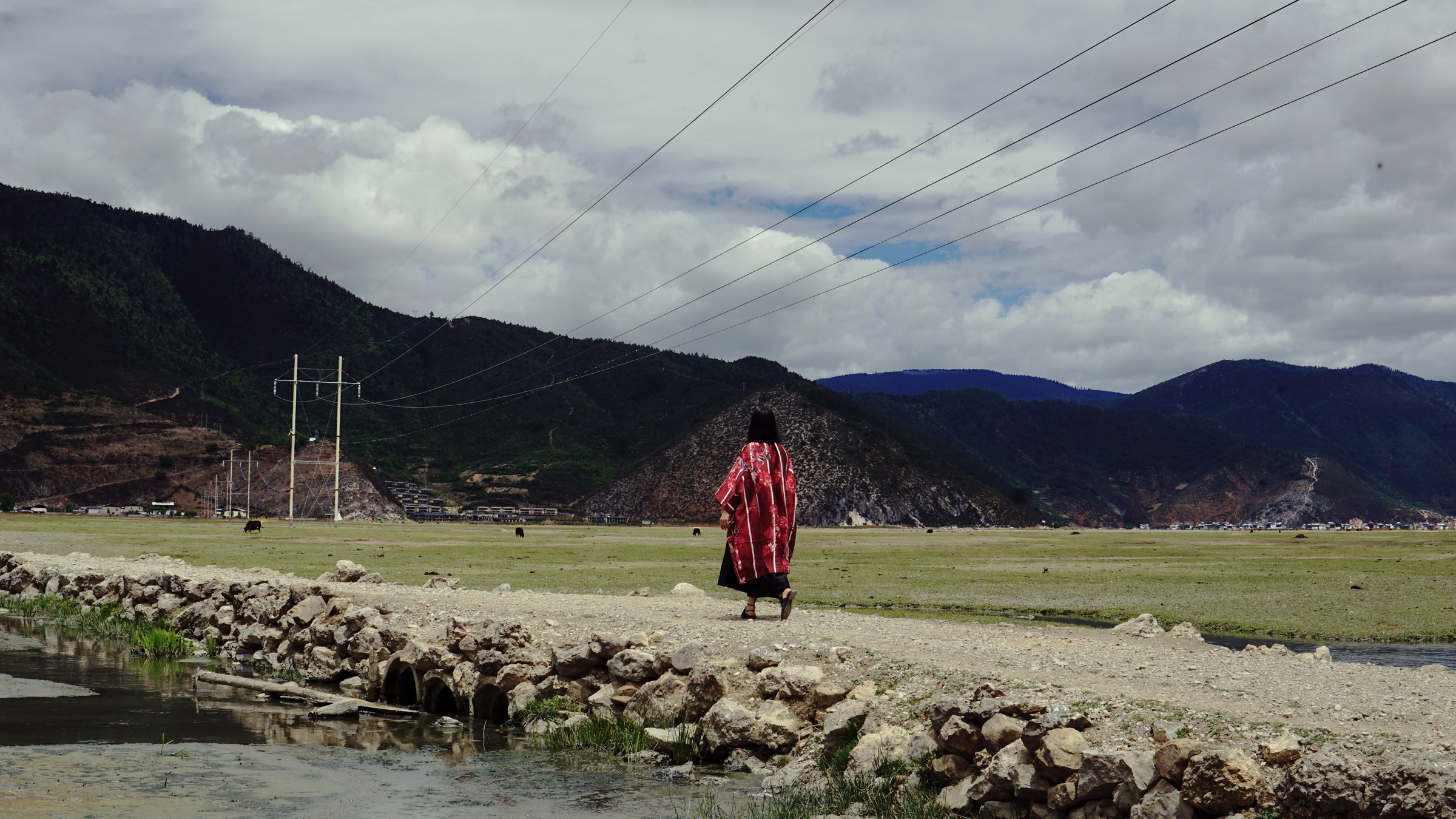
During the Great Recession of 2008, the internet was not as diverse as it is today. One could be insulated in one’s bubble of youth and carefree ignorance, not knowing that most of us are just powerless pawns on a giant chessboard being tossed about. Modern thinkers such as Noam Chomsky, Gore Vidal, Thomas Sowell are names that education systems rarely bring up, especially in economics or ethics; names that exposed how the world works by extrapolating conclusions from empirical evidence, rather than regurgitating deceiving narratives spewed by whoever is in charge of running the world. It felt safe to remain uninformed when I was younger and be told to get mad at whoever I should be mad at. Having seen and lived through many protests of various nature in multiple countries, I find that the easiest group of people to rile up and take part in demonstrations – for both right and wrong (on hindsight) – reasons are emotionally-charged university students who know enough of some things to champion for noble causes, but sometimes not enough to see the broader picture or suspect that there might be manipulation at hand, myself included.
Immediately when the Great Recession happened, you could sense it was bad for everyone everywhere, before central banks kicked in with Quantitative Easing (QE) monetary policy – often dubbed as money-printing – to rescue corporations that were ‘too big to fail’. This pandemic however, has played out unfairly across members of different classes of society. QE went on overdrive. While unemployment soared and small businesses folded worldwide, the billionaire class got richer, stock markets rose like never before. Large corporations had access to cheap credit to continue and expand operations while small businesses were forced to shut. Cheap credit also let large companies gobble up smaller companies, further consolidating global markets into the hands of the very few.
In early 2021, LVMH finalised Tiffany’s purchase with what was essentially near-zero interest rate loan – and part of that interest rate is in the negative (ie. they were paid to borrow money) – courtesy of the European Central Bank. The good news catapulted LVMH’s stock prices, and Bernard Arnault became the richest man in the world. When diving into LVMH’s financial reports, we can see that LVMH’s annualized effective interest rate on debt % for the quarter that ended in December 2020 was 0.84%. In contrast, typical interest rates for small business loans are 2-15% worldwide. Prevailing wisdom states that large firms will be more efficient and trustworthy in using loans hence the favourable credit ratings, yet it has resulted in American and European executives pocketing large bonuses without raising company productivity, employees welfare or reinvesting back into the business. Not only that, cheap credit allowed equity firms to buy long-term assets like housing thereby raises their prices, further putting the dreams of home-ownership out of reach for younger generations. Even if QE was carried out mostly in the US and Europe, its effects could be felt worldwide, as seen on the rise of commodity prices and manufacturing costs in China. Price signals have become distorted despite sluggish industrial output. No-one can tell ups from downs anymore.
The same thing could be said about news and information. Mainstream journalism on the left and right has gone down the path of social media by appealing to the lowest common denominator. Journalists no longer question evidence presented to them but instead choose to recycle other journalists’ works. It is not the integrity and objectivity of the information that matters, but how much anger and other negative emotions it can provoke. Forget facts. Cancel culture runs amok; questions raised against mainstream narratives are deemed as disinformation and fake news, only to be legitimised when it is convenient for the powers that be. It is getting more difficult to separate facts from geopolitical narrative manipulation put forth by both neoliberal and neoconservative interest groups and paid think tanks keen to maintain the global economic status quo and military hegemony, despite the warnings given six decades ago by Dwight D. Eisenhower. In 2021, the world seems more fractured than ever. As a self-professed global nomad who straddles the East and the West, I am bitterly disappointed by this tide of events.
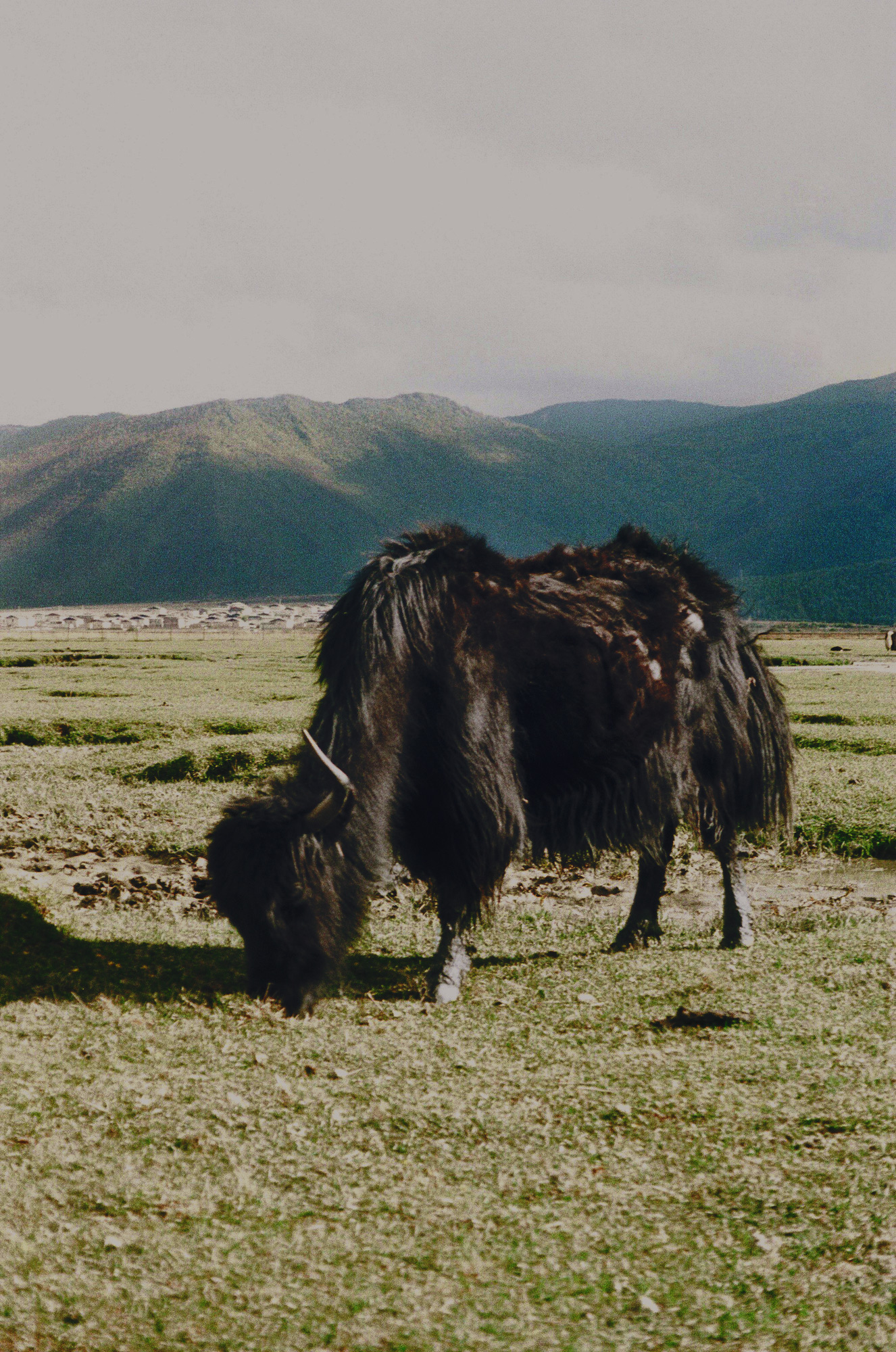
Andrew Yakson 
A commonly-seen wooden structure around local farms
If we go down the rabbit hole to question the world we live in, the bleakness never seems to end. Pull ourselves back far enough however, we might realise that humanity have always been plagued with greed, incompetence, power play, and deception.
Faced with the hopelessness of it all, we would do well to listen to Voltaire and tend to our garden first. There are things that we can still do for the good of our communities, and there are things that should be left to rot on their own. But we must never give up our freedom of choice – the choice to do the right thing.
It is imperative that we cultivate a considered form of consumption. Not all consumptions are made equal. Certain material consumptions can enrich our lives, many don’t. Some should only be consumed in small quantities, others should be made into a habit. When our physical wellbeing and mental capacity are supplied with good nutrition, rest, exercise, and well-rounded knowledge that sharpens our critical thinking skills, we will be more equipped to laugh at the tragedies that have – and will continue to – befall upon us while giving us the strength and conviction to protect the good parts that the world still has to offer.






